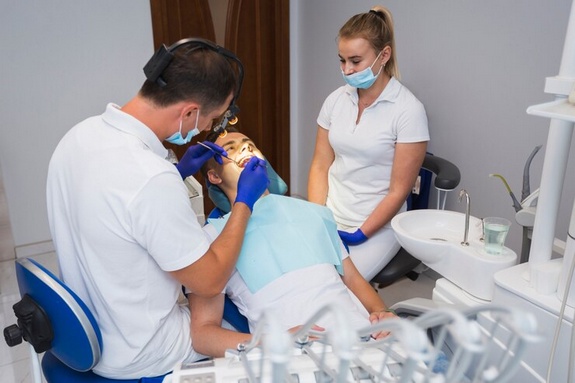Dental emergencies can occur unexpectedly, causing pain, discomfort, and anxiety. When faced with a dental emergency in Cardiff, knowing how to handle the situation and where to find immediate assistance is crucial. This article will discuss common dental emergencies, provide essential tips for managing them, and highlight the importance of relying on an emergency dentist in Cardiff, such as Cyncoed Dental Practice, for prompt and reliable care.
Understanding Dental Emergencies:
Dental emergencies encompass a range of situations that require urgent dental attention. Some common dental emergencies include:
- Toothache: Persistent tooth pain could indicate an underlying infection or tooth decay. If the pain is severe or accompanied by swelling, seeking immediate dental care is essential.
- Cracked or fractured tooth: A cracked tooth can cause pain, sensitivity, and difficulty eating or speaking. It is essential to see a dentist as soon as possible to assess the extent of the damage and prevent further complications.
- Knocked-out tooth: If a tooth is completely knocked out due to trauma, time is of the essence. The chances of saving the tooth increase significantly if you see a dentist within 30 minutes. Handle the tooth by the crown (not the root), rinse it gently, and try to place it back in the socket if possible. If not, store it in milk or saliva and seek immediate dental care.
- Loose or dislodged tooth: A tooth partially pushed out of its socket due to injury should be treated as a dental emergency. Avoid touching the tooth and seek professional help promptly to increase the chances of saving it.
Managing Dental Emergencies at Home:
While waiting to see an emergency dentist in Cardiff, there are steps you can take to alleviate pain and minimise further damage:
- Toothache relief: Rinse your mouth with warm saltwater to reduce inflammation and relieve pain. Over-the-counter pain relievers can also provide temporary relief. Avoid placing aspirin directly on the affected tooth or gums, as it can cause burns.
- Cracked or fractured tooth: Rinse your mouth with warm water and apply a cold compress to reduce swelling. Avoid chewing on the affected side and stick to soft foods until you see a dentist.
- Knocked-out tooth: Handle the tooth carefully, avoiding touching the root. Rinse it gently with water, but do not scrub or remove any tissue fragments. Try to reinsert the tooth into its socket, holding it in place with clean gauze or a tissue. If unable to reinsert, store the tooth in milk or saliva and seek immediate dental care.
- Loose or dislodged tooth: Avoid touching the tooth and gently try to reposition it back into its socket. Apply a cold compress to reduce swelling and seek dental attention right away.
The Role of an Emergency Dentist in Cardiff:
During a dental emergency, seeking professional assistance from an emergency dentist in Cardiff is vital. Here's why:
- Immediate care: Emergency dentists are trained to handle urgent dental situations promptly. They have the equipment, expertise, and experience to provide immediate relief and minimise potential complications.
- Accurate diagnosis and treatment: An emergency dentist can diagnose the underlying issue and provide appropriate treatment. They can address the immediate concern and develop a long-term plan to restore oral health.
- Peace of mind: Dealing with a dental emergency can be stressful and overwhelming. By visiting an emergency dentist, you can gain peace of mind knowing that you are promptly receiving the best care possible.
Conclusion:
Dental emergencies can happen to anyone, and knowing how to handle them is crucial for ensuring a positive outcome. If you experience a dental emergency in Cardiff, contact an emergency dentist immediately for prompt and reliable care. Cyncoed Dental Practice assists you during dental emergencies, providing compassionate and effective treatment to alleviate pain and restore oral health. Acting quickly and seeking professional assistance is the key to successful emergency dental care.


No comments yet